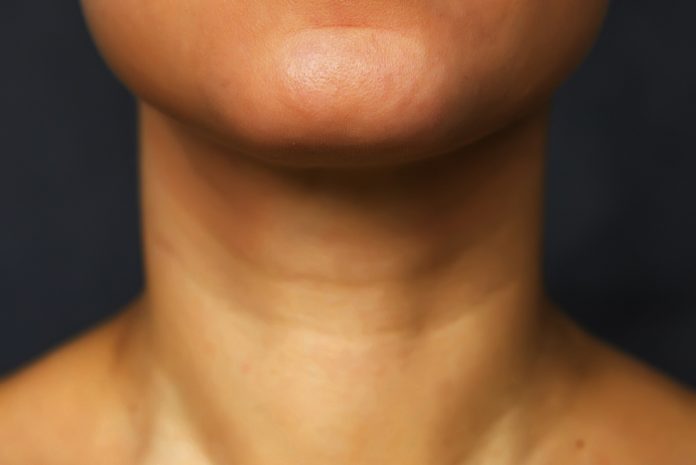Evidence for novel, therapeutic, natural options
Thyroid supplements tend to be specialized products—typically, customers visit natural health retailers looking for assistance for thyroid support. Customers will present the retailer with a prescription note from their naturopath or natural doctor, with a recommended name brand or product.
Daniel Lupu, the owner of the Nutrition House location at Hudson Bay Centre on Bloor Street, Toronto, says that he likes to engage his customers with questions in order to open up a dialogue as to determine their top priorities and chief health complaints.
“At the end of the conversation, the customer is usually left in a position to think about their choices and the information we have provided, and make their final decision without any pressure from staff,” he says.
Yvan Bourgault, pharmacist and co-owner of Homeopathy Quebec, adds, “It takes knowledgeable staff that can understand the difference between the different products on the market. Other than that, we merchandize them the same way we do with other products. However, most of our sales are done after a consultation with one of our experts.”
The importance of having knowledge and experience within the natural health field, Lupu adds, can make a difference in helping to improve the lives of customers. “Thyroid issues tend to be overlooked, misdiagnosed, mistreated, or completely forgotten altogether. The thyroid is one of the most important glands in the human body, yet it rarely gets the attention it deserves until usually it’s too late and the body is in total distress.”
THE 411 ON THYROID
Thyroid disorders affect about 200 million people in the world (0.8 to five per cent of the population), and are four to seven times more common in women. These disorders are found everywhere in the context that they are the root of many other diseases. Thyroid conditions include hyper/hypothyroidism, goiter, thyroid cancer, Graves’ disease (GD) and Hashimoto’s thyroiditis.
Conventional treatment option for nodules and cancer is surgery. Medications are also used for many thyroid conditions. Pharmaceutical medications that are common for hypothyroid status include Synthroid and Cytomel. Hyperthyroidism is treated by radioactive iodine or anti-thyroid medications, such as Methimazole.
There are several natural options available to treat thyroid conditions that can be used in conjunction with these medications or on their own, such as selenium, kelp and zinc. However, more recent attention has been drawn to other options, such as magnesium, vitamin D and carnitine.
MAGNESIUM
Magnesium is a vital part of cellular reactions; it is involved in metabolism, DNA replication, repair, transport mechanisms and cell proliferation. Food sources that are high in magnesium are whole and unrefined grains, seeds, cocoa, nuts, almonds, green leafy vegetables, avocados and fish.
Magnesium has been used in treating arrhythmia, hypertension, high cholesterol, premenstrual syndrome, asthma, diabetes and attention deficit hyperactivity disorder (ADHD), in doses of 100 to 400 milligrams on average, taken with meals. More recently, the relationship between magnesium abnormalities and the development of thyroid disorders has been considered.
Evidence for magnesium
A growing body of evidence has shown the role and pattern of magnesium levels in thyroid disorders, including thyroid cancer and autoimmune thyroid disease. For example, after factoring out ethnicity, one meta-analysis showed a significant association between serum magnesium and thyroid cancer. This retrospective analysis found that individuals with thyroid cancer had lower serum levels, but higher levels of copper than healthy average individuals.
A study on metabolic disorders indicated that mineral deficiencies, including magnesium, were found in patients with autoimmune thyroid disease. This suggested that an improved diet via maintenance of required daily intakes of vitamins and minerals could help decrease symptoms and prevent recurrence of malnutrition-induced thyroid disease.
Another study demonstrated that using conventional medication in the treatment of hyperthyroidism due to Graves’ disease helped normalize magnesium levels. These results are useful with further investigation on whether magnesium could be used therapeutically and if a correction of magnesium deficiency could be beneficial towards correcting thyroid abnormalities.
VITAMIN D
Vitamin D is a fat-soluble vitamin that is found in certain foods and can be produced internally when ultraviolet rays hit the skin. It is inactive and has to go through two transformations to be biologically active: primarily, the liver converts vitamin D to calcidiol, and secondly, the kidney converts calcidiol into calcitriol.
The vitamin’s function in the body is for bone and cell growth, neurological function, normal inflammatory response and thyroid optimization. Food sources of vitamin D include cod liver oil, swordfish, salmon, milk and liver.
Evidence for Vitamin D
The role that vitamin D plays in the development and treatment of thyroid conditions, such as Graves’ disease and thyroid cancer, remains to be uncovered.
One study showed that the prevalence of vitamin D deficiency was significantly higher in Graves’ disease patients. It also suggested that vitamin D deficiency might have been an independent risk factor for predicting failure of radioactive iodine therapy in patients suffering from Graves’ disease.
Overall, given that thyroid conditions can be detrimental if they are not treated and overlap with other diagnoses, it is important to consider several effective treatment options, including conventional and natural ones.
Evidence has suggested a pattern between lower magnesium levels and thyroid disease. Perhaps uncovering a possible relationship between these factors could highlight their potential in treating autoimmune and other thyroid-related diseases. Vitamin D has shown efficacy in preventing migration of certain thyroid cancer cells, helping predict the success of some conventional thyroid treatments. These two powerful supplements have shown promise as potential effective therapeutic targets in thyroid disease, enabling a greater spectrum of choice of natural treatments for practitioners and their patients, as well as knowledge for retailers and their customers.
CARNITINE
Carnitine is found in different forms. L-Carnitine (LC) is made up of methionine and lysine. This transporter is part of an effective shuttling mechanism that transports long chain acyl groups into the mitochondrial matrix to produce energy from fat. LC metabolism within the body occurs via dietary intake, synthesis, and reabsorption in the kidney.
Usual therapeutic dosage ranges are between 500 to 2000 milligrams per day, depending on the use. This option has been used for diabetes, osteoporosis, kidney and liver disease, and more recently, for thyroid diseases.
Evidence for Carnitine
Research has suggested that diminished fatty acid oxidation can be corrected by carnitine supplementation. One randomized, double blind, placebo-controlled study consisted of women who were given thyroid hormones to treat benign thyroid nodules.
The women were divided into three groups; a) those who received a placebo for six months, b) those who received a placebo for two months followed by carnitine: two to four grams per day for two months, then back to the placebo, and c) those who were given carnitine: two to four grams per day for four months and then, given placebo treatment.
The placebo group displayed symptoms of hyperthyroidism, such as muscle weakness, shortness of breath, heart palpitations, nervousness, and insomnia, amongst others. The second group had hyperthyroid symptoms during the two months of placebo treatment, but those symptoms disappeared after two months of carnitine supplementation. However, these symptoms returned again during the last two months of placebo treatment. The last group had no hyperthyroid symptoms until they stopped receiving carnitine at the end of the first four months.
The results, although not reaching statistical significance, were still meaningful from a clinical standpoint, and showed a time-sensitive benefit of carnitine supplementation in hyperthyroidism.
The basis of why carnitine supplementation is useful for many clinical thyroid settings is derived from the understanding that hyperthyroidism lowers tissue carnitine levels. One study showed that urinary excretion of carnitine was increased in hyperthyroid individuals. Another study showed that there were no differences found in the serum ALC profiles between hypo-, hyper- and euthyroid states before and after treatment with thyroxine or Thionamide therapy.
OTHER NATURAL OPTIONS
Overall, given that thyroid conditions can be detrimental if they are not treated and overlap with other diagnoses, it is imperative that several effective treatment options be considered, including conventional and natural ones. Thyroid supplements come in different forms such as regular capsules, vege-caps, softgels, and liquids.
Vitamin D has shown efficacy in preventing migration of certain thyroid cancer cells, helping predict the success of certain conventional thyroid treatments. Carnitine effectively modulates thyroid metabolites in peripheral tissues and can correct inherent carnitine deficiencies caused by hyperthyroidism.
These three powerful supplements have recently shown promise as potential effective therapeutic targets in thyroid disease, enabling a greater spectrum of choice of natural treatments for practitioners and their patients, as well as knowledge for retailers and their customers.
TOP SELLERS
“Over the past two years, I have found that the top selling thyroid supplements are Preferred Nutrition’s Thyrosense, TriStar Naturals Thyroid Plus, AOR’s Thyroid Support, Organika’s liquid Thyodine, and Trophic’s Liquid Iodine.”
-Daniel Lupu, owner of Nutrition House in Toronto
HEFTY PRICE TAGS
Daniel Lupu, owner of Nutrition House in Toronto, “Customers may be surprised to learn that thyroid products come with a higher price tag. We always have more affordable options, such as straight Kelp capsules, or the very effective liquid Iodine drops, which are highly absorbed.”
BY ROCHELLE FERNANDES, MSc., ND (cand) & PHILL FELTHAM







